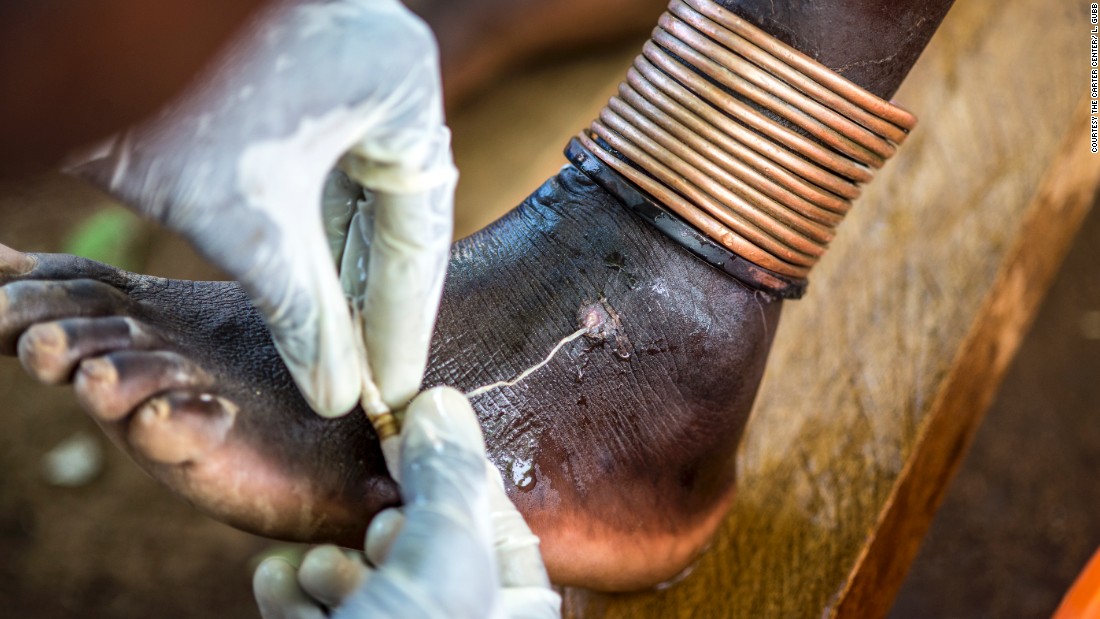The Guinea Worm, thought to be nearly eradicated in places like Chad, recently started preying on dogs. This worm is the largest parasite that affects humans and causes: blisters, ulcers, vomiting, and nausea when trying to expel itself from the human body. This worm enters its host through infected water sources and is highly contagious. Because this worm is now affecting dogs, more urgent research is being conducted to hopefully stop the spread and eradicate the parasite once and for all.
 |
| A Guinea Worm being extracted from a foot via CNN |
The New York Times recently covered this spreading parasite and the scientists who are currently performing more research. Dr. Ernesto Ruiz-tiben, the director of the Carter Center's Guinea worm eradication program, has put together a team of doctors who are working with the people in infected areas to prevent the spread of this worm. Some places, like Chad, are paying their villagers $20 per dog and $100 per person who is infected. The only stipulation is that you chain the dogs up until the worms have been freed, and the people stay away from water. Doctors and community workers have created a sort of game show and ceremony around the guinea worm outbreak. A big spectacle is made when giving money to families, and prizes are given out to correct trivia answers.
Although villagers are benefiting from this outbreak, there is still alot of research to be made to prevent future outbreaks. One such issue points to frogs. One the one hand, frogs don't prove to be a threat to people, but the consumption of frogs is dangerous. It seems that many villagers are eating frogs, becoming infected, and once the dogs eat the leftovers, and becoming infected also. The consumption of frogs is hotly debated among the scientists and Chadians. Some Chadians are adamant that frogs are not eaten because they are poisonous, while others show scientists holes full of frog carcasses. Many sollutions have been considered- drilling more wells, de-worming medicines, and even killing all the dogs.
After reading this article, the new outbreak in dogs seems odd to me. The fact that people are being paid $20 and $100 for contracting the worm doesn't quite add up. The article states that "people here may not see that much cash in a year". If this big of an incentive is being given to villagers, what's to stop them from purposely contracting the Guinea worm to make more money? Cynical yes, but improbable? No. In desperate situations where people are living in squalor and eating frogs, I wouldn't be surprised if the worms were being farmed by people.
Another issue with this outbreak is the lack of research and coverage. It seems as though the Carter Center is the only real group workings towards the extinction of this parasite. The global eradication effort that began in the 1990's had the goal of making this the second disease to be completely eradicated and the first parasitic disease to be eradicated without medicines/vaccines. This alone is huge; However the lack of news coverage surrounding the nearly-eradicated disease suggests otherwise.
In the near future, I hope that scientists will discover a cause and prevention system for this parasite. I believe that the Guinea Worm will be eradicated during my lifetime, and that sparks hope for the eradication of other, more serious diseases.
Comments
Post a Comment